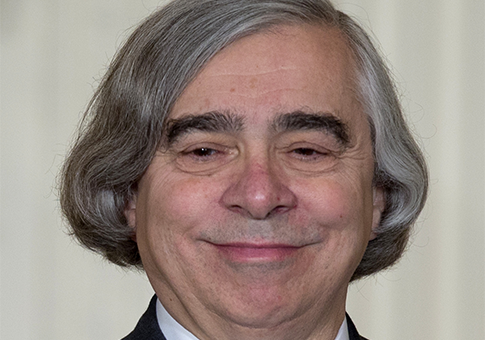The president’s nominee for energy secretary advised a foundation created by an oil company that has flouted sanctions against Iran, a connection Republican aides in the Senate describe as troubling.
Ernest Moniz was a paid adviser to a group founded by and working to advance the interests of Italian oil company Eni, according to personal financial disclosure forms filed in March.
Eni continued to export Iranian crude oil after the imposition of sanctions designed to undercut the country’s petroleum sector. Exports stalled in recent months due to logistical problems.
The Fondazione Eni Enrico Mattei (FEEM), which was founded by Eni and works to advance the company’s interests, paid Moniz more than $13,000 for consulting from June 2009 through February 2013, according to the disclosures.
Eni and FEEM did not respond to requests for additional information on the role Moniz played at the foundation or the company’s business interests in Iran.
An aide to a Republican member of the Senate Committee on Energy and Natural Resources, which will consider Moniz’s nomination later this month, expressed concerns about the MIT professor's ties to FEEM.
"These connections are troubling because it shows a pattern of willingness among individuals at the highest levels of this administration to work with organizations that undermine our national security and put our allies at risk," the aide told the Washington Free Beacon.
Defense Secretary Chuck Hagel and U.N. ambassador Susan Rice have also been scrutinized for ties to Eni.
Eni is a major supporter of Moniz’s Massachusetts Institute of Technology Energy Initiative (MITEI). According to the initiative’s website, the company is a "founding member, a key partner since shortly after MITEI’s launch and is also MITEI’s largest energy research sponsor."
Eni has donated as much as $25 million to the MITEI, according to the Washington Post. The MITEI also received funding from oil company Royal Dutch Shell, which has been criticized for doing business with Iran.
Moniz’s office did not respond to requests for comment on his role at FEEM or Eni’s history of doing business in Iran in defiance of international sanctions.
Eni pledged in 2010 to end all investments in Iran in order to comply with sanctions. The company purchased more than seven million barrels of Iranian crude the following year.
Company executives were open about its continued dealings in the country.
"Given the existence of foreign pressures, implementation of most projects in Iran is challenging and complicated," Eni Executive Vice President Guido Michelotti said during a 2011 visit to the country.
"Yet we have always been interested in cooperation with the Iranian side since we feel proud of cooperation with Iran," he added.
Eni won an exemption from European sanctions against Tehran in 2012, allowing it to continue receiving payments from the regime in the form of crude oil.
State-owned Iranian media bragged in 2012 that Eni continued to export Iranian crude despite sanctions.
Eni was Italy’s state-owned oil company from 1953 to 1992. The government remains the company’s top shareholder.
Eni was formerly an acronym for Ente Nazionale Idrocarburi (National Hydrocarbon Authority), whose post-war administrator, Enrico Mattei, was a major ally of the Soviet Union and brokered large oil deals with the communist nation.
FEEM was founded by Eni and named after Mattei. Its bylaws require that the organization study "issues of particular interest to the Eni Group," and that the oil company get advance notice of all research that FEEM produces. Eni also appoints FEEM’s board of directors.
"Legally, technically speaking, they’re separate organizations," Emanuele Ottolenghi, an expert on Iran and energy issues with Foundation for Defense of Democracies, said of Eni and FEEM.
But the foundation is "obviously linked to Eni," he said.
Ottolenghi said Eni has continued doing business with Iran as a means to reclaim a debt owed the company by the Iranian government.
But "there is no doubt that Eni was not keen to support sanctions" in the first place, he added.
FEEM is "devoted to the study of sustainable development and global governance," according to its website.
